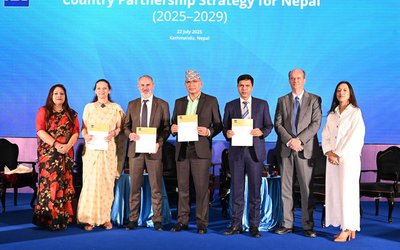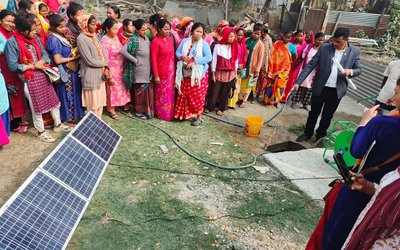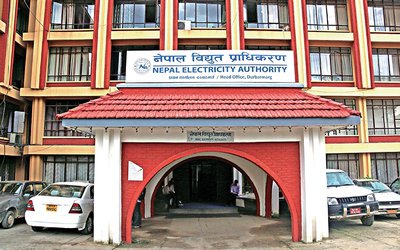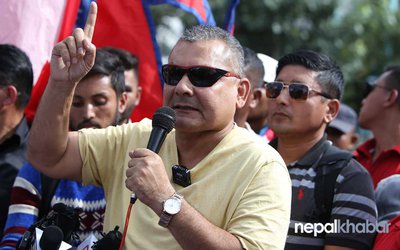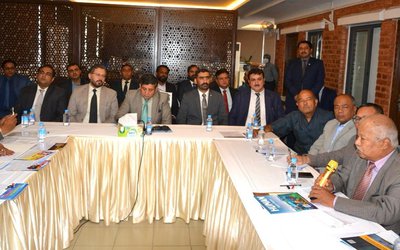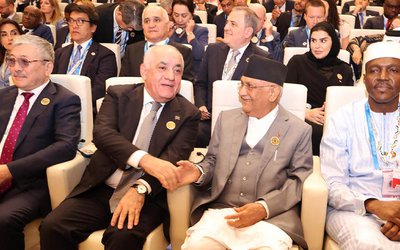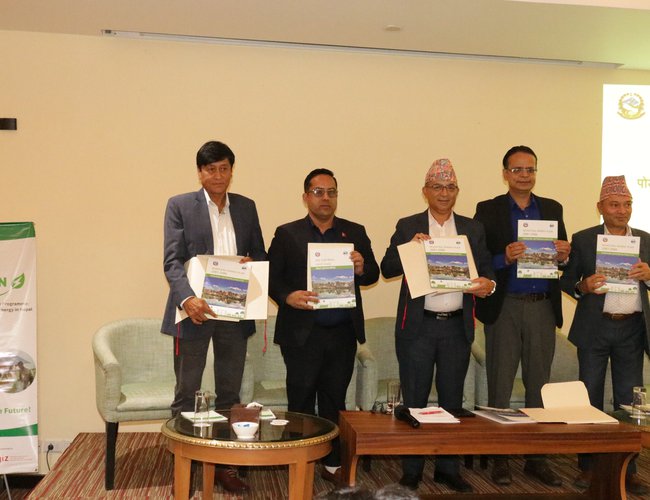
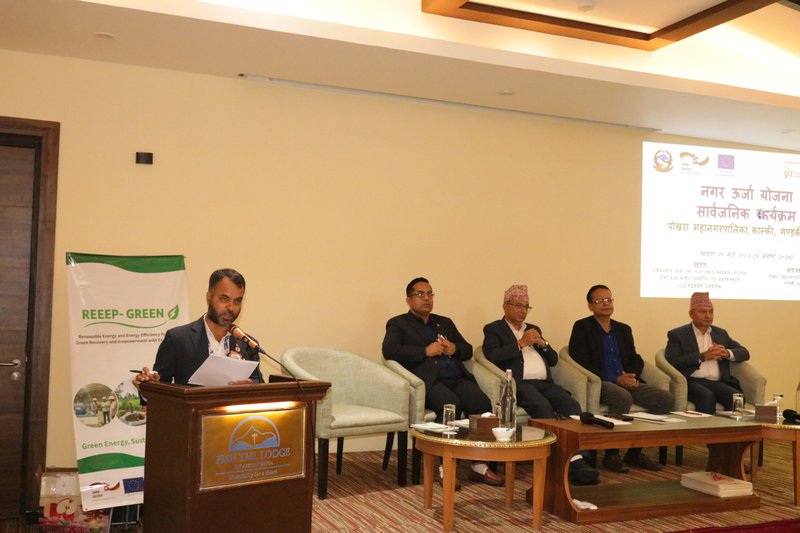
In a major stride toward sustainable urban development and the transition to clean energy, Pokhara Metropolitan City officially launched its first-ever Municipal Energy Plan (MEP) today. This five-year strategic plan is designed to expand energy access, enhance energy efficiency, and promote renewable energy solutions to meet the city’s growing energy needs—while aligning with Nepal’s national energy and climate objectives.
The launch ceremony took place at the Fishtail Lodge in Pokhara, where Mayor Dhanaraj Acharya formally unveiled the MEP. The event was attended by key dignitaries, including Dr. Narayan Prasad Adhikari, Deputy Executive Director of the Alternative Energy Promotion Centre (AEPC), and Dr. Narayan P. Chaulagain, Senior Energy Specialist at GIZ Nepal, along with representatives from Pokhara Metropolitan City, GIZ Nepal, and the private sector.
The MEP received technical support from the REEEP-GREEN project, a joint initiative funded by the European Union (EU) and the German Federal Ministry for Economic Cooperation and Development (BMZ). It is implemented by GIZ in collaboration with the Ministry of Energy, Water Resources, and Irrigation (MoEWRI) and AEPC, working closely with local governments to promote inclusive, gender-responsive energy planning and municipal capacity building.
The plan was developed by Pokhara’s Energy Development Subcommittee with technical assistance from REEEP-GREEN, following a comprehensive nine-step process that included extensive stakeholder consultations. It was officially approved and endorsed by Pokhara Metropolitan City in February 2025.
With a total budget of NPR 1.33 billion (NPR 1,333,082,000), the MEP outlines a clear vision: "Efficient and sustainable energy for a prosperous Pokhara."
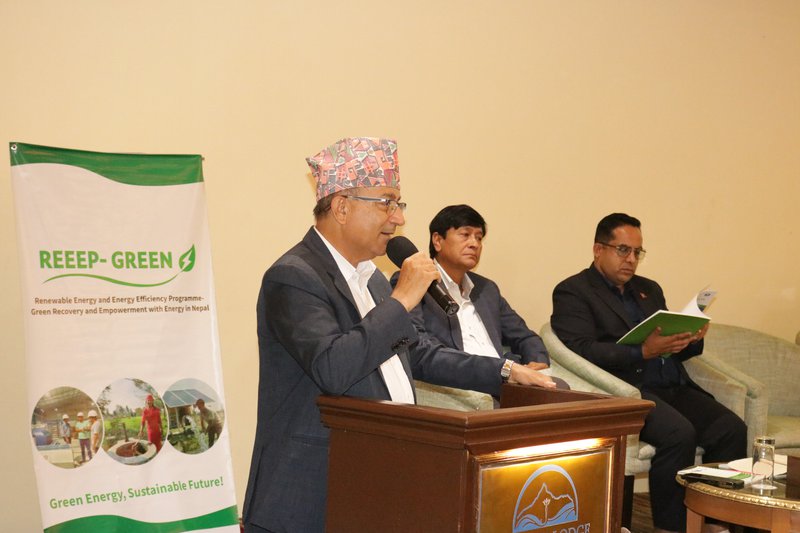
Key priority areas of the MEP include:
- Increasing generation and use of clean, efficient renewable energy at the household level
- Promoting a shift from conventional and imported fuels to locally available renewable energy sources
- Enhancing energy efficiency in commercial and industrial sectors while reducing greenhouse gas (GHG) emissions
- Raising public awareness through policy initiatives and educational campaigns
Speaking at the event, Mayor Acharya reaffirmed the city's strong commitment to implementing the MEP in close collaboration with all stakeholders. He underscored the plan's vital role in advancing Pokhara’s journey toward a greener, more resilient, and energy-smart future, and emphasized the importance of effective coordination among all three tiers of government to ensure the successful implementation of such an ambitious initiative.
- Durga Prasai Released on Bail
- Aug 05, 2025
- Pakistani Embassy Organized A Talk Program In Kathmandu
- Aug 05, 2025
- Third UN Conference On LLDCs Begins, PM Oli's Address Today
- Aug 05, 2025
- Water Flow Measured At 179,000 Cusecs In Saptakoshi River
- Aug 05, 2025
- PM Oli Leaves For Turkmenistan
- Aug 04, 2025
